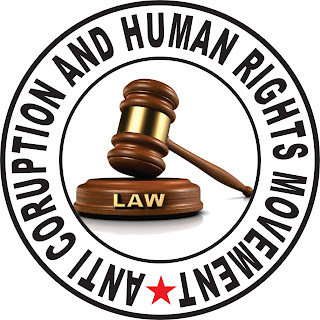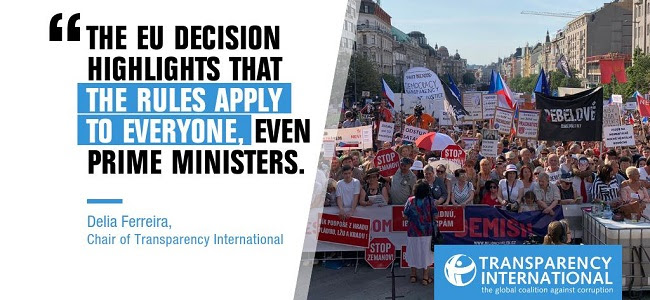ANTI-CORRUPTION LAW SERIES
Dear Development Leaders
Promote Activities such as :-
1.Organize, communicate, and raise awareness on
Anti corruption laws to your target people.
2.Identify the victims and witnesses of corruption
in your working area
3.Identify the need of Legal consultancy for Consumer
rights, women’s rights, Child rights, aged rights, revenue, education,
documents registration, social welfare, public and temple property panchayat,
forest, insurance, and all government department corruptions related issues etc
4.Get an affidavit for
such issues
Anticorruption law- series
Prevention
of Corruption Act, 1988
The primary
anti-corruption statute in India, the Prevention of Corruption Act, 1988
(‘PCA’), criminalises receipt of any ‘undue advantage’ by ‘public servants’ and
providing such undue advantage by other persons. The PCA states that an ‘undue advantage’ is
any gratification (not limited to being pecuniary in nature or estimable in
money) other than the legal remuneration which a public servant is permitted to
receive either from the government or any other organization served by such
public servant. Further, the term
‘public servant’ has a wide definition under the PCA, and includes any person
in the service or pay of any government, local authority, statutory
corporation, government company, or other body owned or controlled or aided by
the government, as well as judges, arbitrators, and employees of institutions
receiving state financial aid. The
Supreme Court of India has also held that employees of banks, public or private
are also considered ‘public servants’ under the PCA.1
The offences under
the PCA include: (1) public servants obtaining any undue advantage with the
intention, or as a reward, to improperly or dishonestly perform or cause
performance of public duty; (2) public servants obtaining any undue advantage
without (or for inadequate) consideration from a person concerned in
proceedings or business transacted either by the public servant or any other
public servant to whom such public servant is a subordinate; and (3) criminal
misconduct by a public servant (which includes possession of disproportionate
assets) and a habitual offender.
The PCA also targets
the conduct of ‘middlemen’, influence peddlers or intermediaries who facilitate
bribery, by criminalizing the act of taking any undue advantage to cause the
improper or dishonest performance of public duty. Until recently, bribe-givers were brought
within the ambit of the PCA through the offence of ‘abetment’ of the offences
mentioned above – however, recent legislative changes to the PCA in 2018 have
expressly targeted bribe-givers by criminalising the act of providing or
promising to provide a bribe to any person (irrespective of whether such person
is a public servant or not) to induce or reward a public servant to improperly
or dishonestly perform a public duty.
The bribe-giver may also be charged with ‘criminal conspiracy’ to commit
offences under the PCA.
The penalties for
various offences under the PCA include imprisonment ranging from six months to
10 years, and a fine (for which no maximum amount is prescribed). Further, recent legislative changes to the
PCA have also introduced provisions pertaining to attachment and confiscation
of property procured by way of an offence under the PCA. It is not inconceivable for investigating
authorities to allege that any advantage received by a bribe-giver pursuant to
the bribery (which is an offence under PCA) could also be subject to attachment
and confiscation, and not just the property of the public servant(s) in
question.
Under the PCA, if
there is an agreement or attempt to give or receive a bribe, this itself is
sufficient to constitute an offence (and attract prosecution), and the actual
payment of a bribe is not necessary.
Further, it is immaterial whether the bribe has been obtained for a
public servant’s own benefit or the benefit of any other person, either
directly or through any other person.
Offences under the PCA are generally investigated by a special
enforcement unit called the Central Bureau of Investigation (‘CBI’) or the
state anti-corruption departments of the police. It may be noted that the prior sanction of
the government is required for the initiation of prosecution under the PCA
against public servants. However, this
safe harbour applies only to proceedings against serving and retired public
servants and not persons accused of giving bribes. Trials for offences under the PCA are
conducted before special courts set up for this purpose.
Service
rules for government officials
Government officials
in India are also bound to conduct themselves in accordance with the ‘service
rules’ applicable to different classes of officials, including the Central
Civil Services (Conduct) Rules 1964 and the All India Services (Conduct) Rules
1968 (‘Service Rules’). Service Rules
prohibit government officials from receiving gifts, hospitality, transport, or
any other pecuniary advantage that exceeds certain specified thresholds from
individuals other than near relatives or personal friends (with whom such
official has no business dealings) without the sanction of the government –
however, a casual meal, a casual lift, or other social hospitality is
permitted. The Service Rules also
provide that government servants are not permitted to accept lavish or frequent
hospitality from persons with whom they have official dealings, and prohibit government
servants from engaging in any trade, business, or other employment, canvassing
in support of any business and participating, except in the discharge of
official duties, in the registration, promotion or management of any company
for commercial purposes. A contravention
of the Service Rules can lead to initiation of disciplinary proceedings against
the concerned official, the consequences of which could include termination of
service.
(All
forms of corruption must be ended to secure the basic rights of all people and
ensure a world where everyone can live in dignity.
We
also know that corruption can’t be rooted out in one big sweep. Rather,
fighting it is a step-by-step, project-by-project process.)
MANISHANKAR
CEO-Anti-Corruption And Human
Rights Movement®-Chennai
Email; anticorruption.org2007@gmail.com.
Mobile:91
9087856137




Comments
Post a Comment